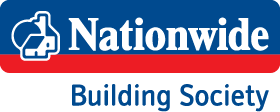Start-up valuations often come under scrutiny and even ridicule. The IPO of Lyft is a recent example, with many asking how a company that’s yet to make a profit can be valued at £28 billion.
In the wacky world of startups, we often come across businesses that are little more than a promising idea - they usually make no money and are hugely exposed to debt and market fluctuations. So, it’s understandable to question how a business like this can ever represent good value to an investor or be worth tens of millions.
Valuations tend to be measured against financial return on investment (ROI), but not all returns can be measured in pounds and a shrewd investment is about more than just profit.
I’ll expand on this (and hopefully do my street cred some good) with an example from my twenties, most of which I spent trying to master the art of riding motorcycles.
My professional research expertise touches every aspect of my life, and this predilection means I’m drawn to hobbies with a technical element. The speed, the power and the noise of motorcycles were alluring, but mostly I was drawn to the technical intricacies.
Riding a motorcycle is easy. Riding one fast, and staying on, is a fine balance of physical forces. Every input has an effect on the machine. Braking at the wrong time, accelerating too much (or not enough), turning too early – everything has an impact and the results can be disastrous.
Learning about these things became very important to me, so I got researching (shock!) and found a book about the art of racing motorcycles by one of the world’s most successful race instructors.
It was no bigger than the average book. It had words and pictures just like many other books. But it was different in one key aspect – it was ten times more expensive.
I was willing to invest what would seem to some an extortionate amount of money on a single book because of the author – an experienced, successful racer who now coached world champions. I was paying for his experience, his knowledge, and most importantly, his ability to share this expertise with me through the pages of his book.
If the book turned me into a champion and enabled me to make millions as a racer it would be easy to see it as a very shrewd investment with a measurable financial ROI.
To someone else, the book might only have value as a glorified doorstop and certainly wouldn’t be worth the hefty price tag. For me the opportunity to learn from an expert in their field, in an area of personal importance was worth every single penny – regardless of the financial outcome.
As it happens, I didn’t end up a race-winner, but the journey taught me a lot, improved my abilities, and the knowledge I gained literally saved my life.
Corporate venture capital is much like this book and its value.
It’s true that many start-ups have valuations that, at face value, are vastly out of kilter with their financial performance – often based on a future where the business may become a world-beating success. Many traditional VCs invest on this premise, betting on a large number of start-ups in a hope of finding the next champ that pays for all the chumps.
NBS Ventures is different. We carefully invest not just to make money, but more importantly to learn about areas of significant interest and importance to the Society and our Members. We invest in founders with expertise and qualities that they will share, in turn helping Nationwide to improve, to prepare for the future and to serve our members better.
To us the value is in the learning and in the future, it may just save our lives… metaphorically, this time!
If you fancy learning more about us and what we’re researching at present (or if you just want to talk motorbikes), please do get in touch.
By Samuel White

